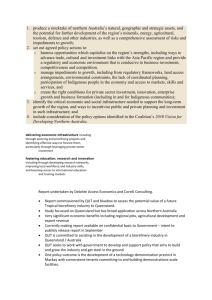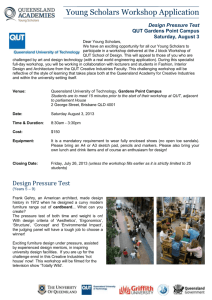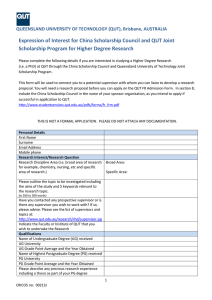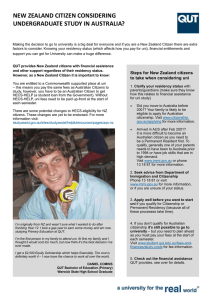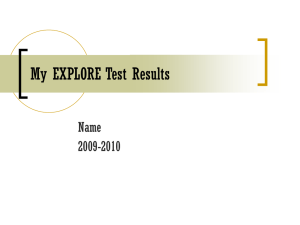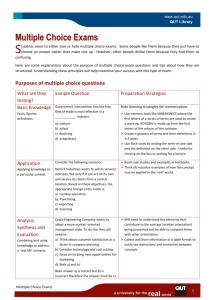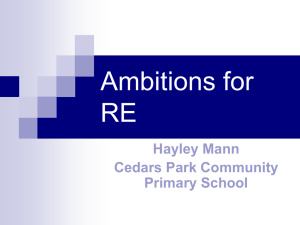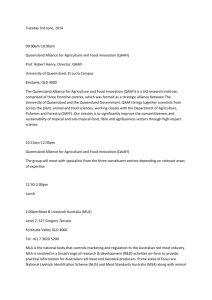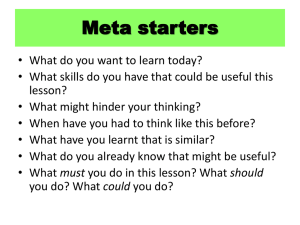The STARL-P Framework for reflection
advertisement
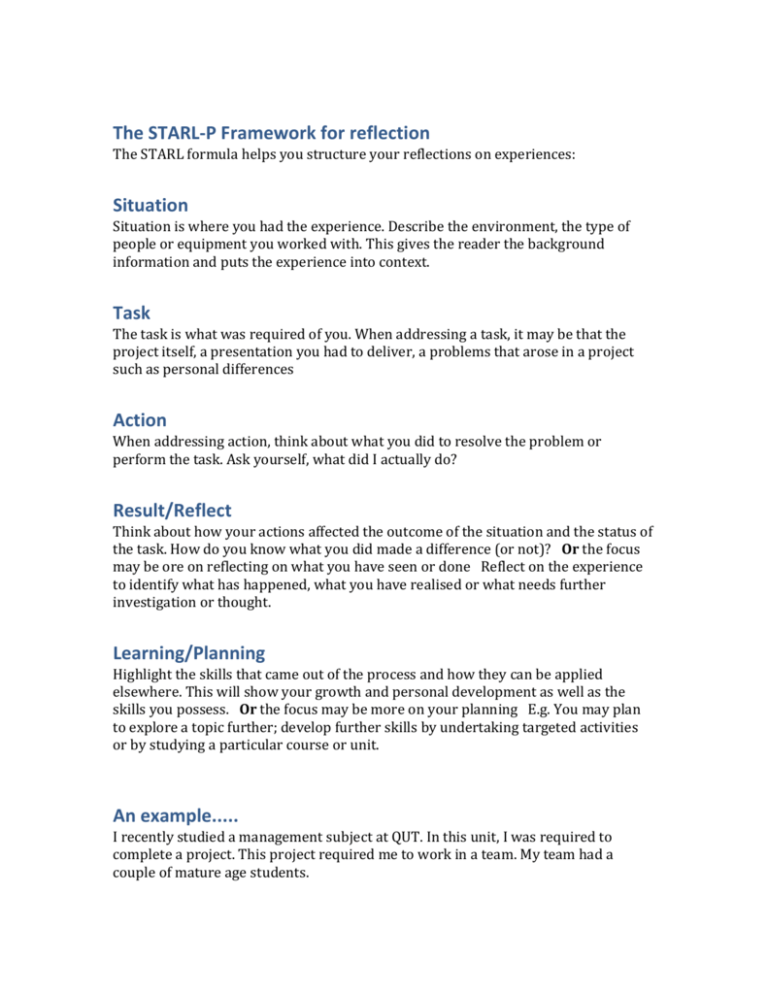
The STARL-P Framework for reflection The STARL formula helps you structure your reflections on experiences: Situation Situation is where you had the experience. Describe the environment, the type of people or equipment you worked with. This gives the reader the background information and puts the experience into context. Task The task is what was required of you. When addressing a task, it may be that the project itself, a presentation you had to deliver, a problems that arose in a project such as personal differences Action When addressing action, think about what you did to resolve the problem or perform the task. Ask yourself, what did I actually do? Result/Reflect Think about how your actions affected the outcome of the situation and the status of the task. How do you know what you did made a difference (or not)? Or the focus may be ore on reflecting on what you have seen or done Reflect on the experience to identify what has happened, what you have realised or what needs further investigation or thought. Learning/Planning Highlight the skills that came out of the process and how they can be applied elsewhere. This will show your growth and personal development as well as the skills you possess. Or the focus may be more on your planning E.g. You may plan to explore a topic further; develop further skills by undertaking targeted activities or by studying a particular course or unit. An example..... I recently studied a management subject at QUT. In this unit, I was required to complete a project. This project required me to work in a team. My team had a couple of mature age students. There was immediately a clash of values between the younger students (who'd come to uni straight from school) and the mature age students. I had to find some middle ground between my team members' differing views. I decided to call a team meeting to set up some rules for the group. When the project was over, the team received a Credit. The project might not have been a brilliant success, but the task was completed satisfactorily • Situation - The situation is the context in which the experience occurred. In our example, the experience took place at the Queensland University of Technology within the context of a team project. This project was undertaken as part of a management subject (MGB222). The team had six members, two of whom were mature-age students. • Task - The task is what was actually required of you in the situation. If an experience occurred during a project at uni, the associated task might have been related to organisation (e.g. managing project documentation), teamwork (e.g. ensuring that each team member was aware of their responsibilities), or communication (e.g. delivering a presentation as part of the project). In our example, the task was to resolve a problem that arose as a result of personal differences. • Action - Action refers to the steps that you personally took in response to the task. When reflecting on your actions, ask yourself why you chose to respond in that particular way. In our example, the action was initiating and organising a team meeting to develop some ground rules. • Result - Result refers to the outcome of your actions. How did your actions contribute to the completion of the task? How did your actions affect the final outcome of the situation? In our example, the action resulted in successful conflict management, and contributed to the satisfactory completion of the project. • Learnt - Learnt refers to the things you have learned from the experience. Highlight any skills or abilities that you have developed or improved as a result of the experience. Think about whether you have gained a deeper understanding of any particular issues. Think about how you might apply what you've learned to other situations. In our example, we might have learned that setting team rules is a good way to impersonalise any issues or conflict, and that this should be done as early in the process as possible. Queensland University of Technology. (2011). The STARL-P framework for reflection. Brisbane, Qld: Author. Retrieved from http://www.studenteportfolio.qut.edu.au/projectinfo/STARLP%20Framework%20_2_.pdf
